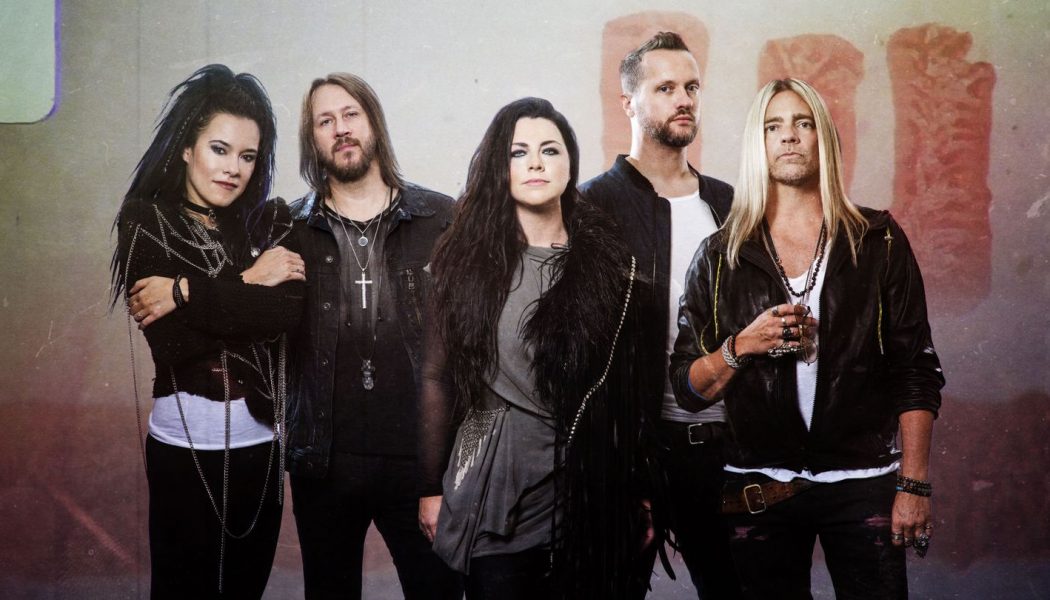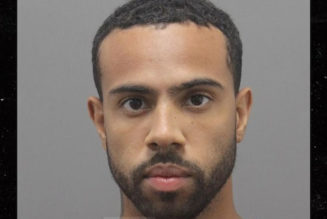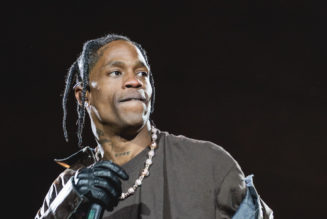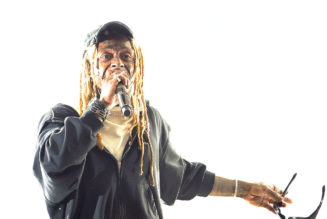
By Erica Russell
When Evanescence first broke out in 2003, no one really knew what to make of them.
Despite rising on the Billboard Hot 100 and Top 40 charts and scoring five Grammy nominations (including two wins), Evanescence were imperfect outsiders who crashed into the mainstream when popular music just so happened to be at its most polished. The sound of their debut album, Fallen — a distinctive synthesis of sweeping orchestral drama; dark, gothic nu-metal; and big, pop-friendly hooks — was subversive and unexpected. And lead singer Amy Lee, with her commanding, celestial voice and faerie-goth aesthetic (complete with corsets and striped arm warmers) was like no other pop star at the time.
With their dynamic breakout “Bring Me to Life,” rage-fueled rock banger “Going Under,” and somber piano ballad “My Immortal,” hit songs that tackled topics from feeling numb and disconnected to coping with trauma, Lee became a symbol for the post-Y2K outcasts everywhere; the broken kids who couldn’t necessarily relate to many of the songs on the radio but felt seen and heard by the musician’s expressive, alternative style and angst-ridden, soul-baring lyrics.
“We’ve never tried to follow a trend. More the opposite, if anything,” Lee tells MTV News, citing artists such as Björk, Garbage, Veruca Salt, and Tori Amos as personal heroes. “The people who inspired me the most during my formative years were people who weren’t trying to be pretty; who weren’t always showing the perfect, polished version of themselves — it was people who put their heart, opinions, and scars front and center.”
Nearly two decades and four successful albums after the band’s debut, Evanescence’s authenticity still resonates today. “I think there’s something in our music that speaks to people around the world on a deep level,” the 38-year-old musician muses. “I just know that if I write from my heart, about the things I feel are real, I won’t be alone in those feelings. I don’t know the secret to our success, but I believe in touching on things that aren’t often talked about in popular music and questioning the deeper stuff. I want people to know that it’s OK to hurt.”
Having personally experienced the tragedy of loss (her younger sister, Bonnie, died at the age of three in 1987, and her brother Robby passed away in 2018, just 24 at the time), Lee is no stranger to life’s painful moments. She admits she feels a bond with “people who have experienced death, heartbreak, and big challenges in their lives,” and that her yearning to find human connection is what motivated her to start the band in the first place. “It’s funny,” she says, “because I’ve had people ask me, ‘Why is your music so depressing?’ And I’m like, ‘Have you really listened to it? It’s not!’ It’s full of hope.”
Since the release of their self-titled third studio album in 2011, Evanescence embarked on two world tours and countless festivals; experienced a number of lineup changes; dropped a collection of B-sides and rarities (2016’s Lost Whispers); and released an album of orchestral and electronic reworkings of previously released songs (2017’s Synthesis). During it all, Lee collaborated on a soundtrack (2014’s Aftermath), worked on an EP of song covers (2016’s Recover, Vol. 1), and released a children’s album (2016’s Dream Too Much). She also experienced a lot of “big moments” (including the birth of her first child) that forced her “to zoom out and see my life, myself, my time, and our world in a different way, and start asking questions and writing ideas.”
But as the music “started flowing out,” like most of the world, Evanescence (currently composed of Lee, bassist Tim McCord, drummer Will Hunt, and guitarists/backing vocalists Jen Majura and Troy McLawhorn) were plunged into quarantine just as they were preparing to roll out The Bitter Truth, their forthcoming full album of original music in nearly 10 years. Nevertheless, Lee’s “heart was on fire,” ready to share her new perspective with the world, and so instead of postponing the record the band decided it was time to make their comeback — and hopefully inspire their fans to give moving forward in the process.
“The world shifted. We were put into a completely unprecedented situation,” Lee explains. “It’s been so long since we’ve released a fully new album, and if there’s one thing that I want for myself and for the people that follow us, it’s to not give up, you know?” And so, in April, Evanescence released “Wasted on You,” an emotional rock ballad about feeling stuck in limbo, along with an intimate music video composed of footage each band member filmed on their iPhone while at their respective homes during isolation. The clip is nominated for Best Rock at the 2020 MTV Video Music Awards, something which Lee says has inspired the group to work even harder.
As the band continues to unveil The Bitter Truth one track at a time, Evanescence’s latest single, “Use My Voice,” may be their most politically charged song to date. The track features collaboration from some of Lee’s rock peers, including Taylor Momsen and Lzzy Hale of Halestorm, as well as friends and family members, such as the musician’s sisters. Lee says the song, which captures the current socio-political zeitgeist of advocacy and activism, and was inspired by how she’s been “feeling about the state of our country,” has been a few years in the making.
“As we were recording it, I was listening back to my own words and started asking myself, ‘What can I do to use my voice? How can we use our platform for good and empower people?’ I believe that this is a very important, revolutionary time,” she shares. “Things are messed up. I’ve never been political publicly — I’ve kept that part of myself private because I see music as a place to get away from our differences and find unity. We need to be unified now more than ever, but I finally feel in my heart that if I’m going to be true to my word. It’s time to use my voice to help promote our future.”
A rollicking non-partisan protest song about the importance of standing up for what you believe in, “Use My Voice” serves as the official song for HeadCount’s 2020 voting-registration PSA, for which Lee is the spokesperson. The timely campaign — which promotes a user-friendly website on which people can learn about the government officials up for election, find their local polling stations, and register to vote in just minutes — is more critical than ever during an election year that will take place amid a global pandemic, as well as controversy surrounding voting by mail.
“I think there are a lot of unheard voices in our country right now, and they deserve to be heard — all of them,” Lee says. “I just want to encourage people to vote. I heard that nearly half of [voting age] Americans don’t vote. It’s a big number. We need to get out there and make a change, so more people can get their voices heard.”
“Use My Voice” is also significant for Lee on a more personal level, considering how fiercely she’s had to fight to use hers throughout her career. In 2005, the musician sued her band’s former manager for financial and sexual misconduct, and in 2014, she sued Wind-Up Records for more than $1 million in unpaid royalties. Many have tried to either silence or speak for Lee — from her label forcing a male vocalist on “Bring Me to Life,” to 50 Cent nearly interrupting her Best New Artist acceptance speech at the 2003 Grammys — and music industry-wide sexism has repeatedly marginalized her among her male rock peers.
But Lee is resilient. Her music undoubtedly paved the way for the edgy, nu-metal/pop embraced by artists such as Rina Sawayama, Grimes, and Poppy today, and stars like Halsey and Taylor Momsen count themselves as longtime admirers. Just as Lee inspired Evanescence fans to embrace their inner truths and speak up for themselves nearly 20 years ago, nothing can quiet her down.
“No matter who’s standing around you telling you that it’s not as important as somebody else’s voice, your voice does matter. You have to have a strong constitution to say, ‘This is my voice and you’re not gonna take it away from me.’ Sure, you can still respect other people and nod your head and say, ‘Cool, thanks for your opinion,’ while standing up for yourself. But we can’t be silenced. We just can’t.”










